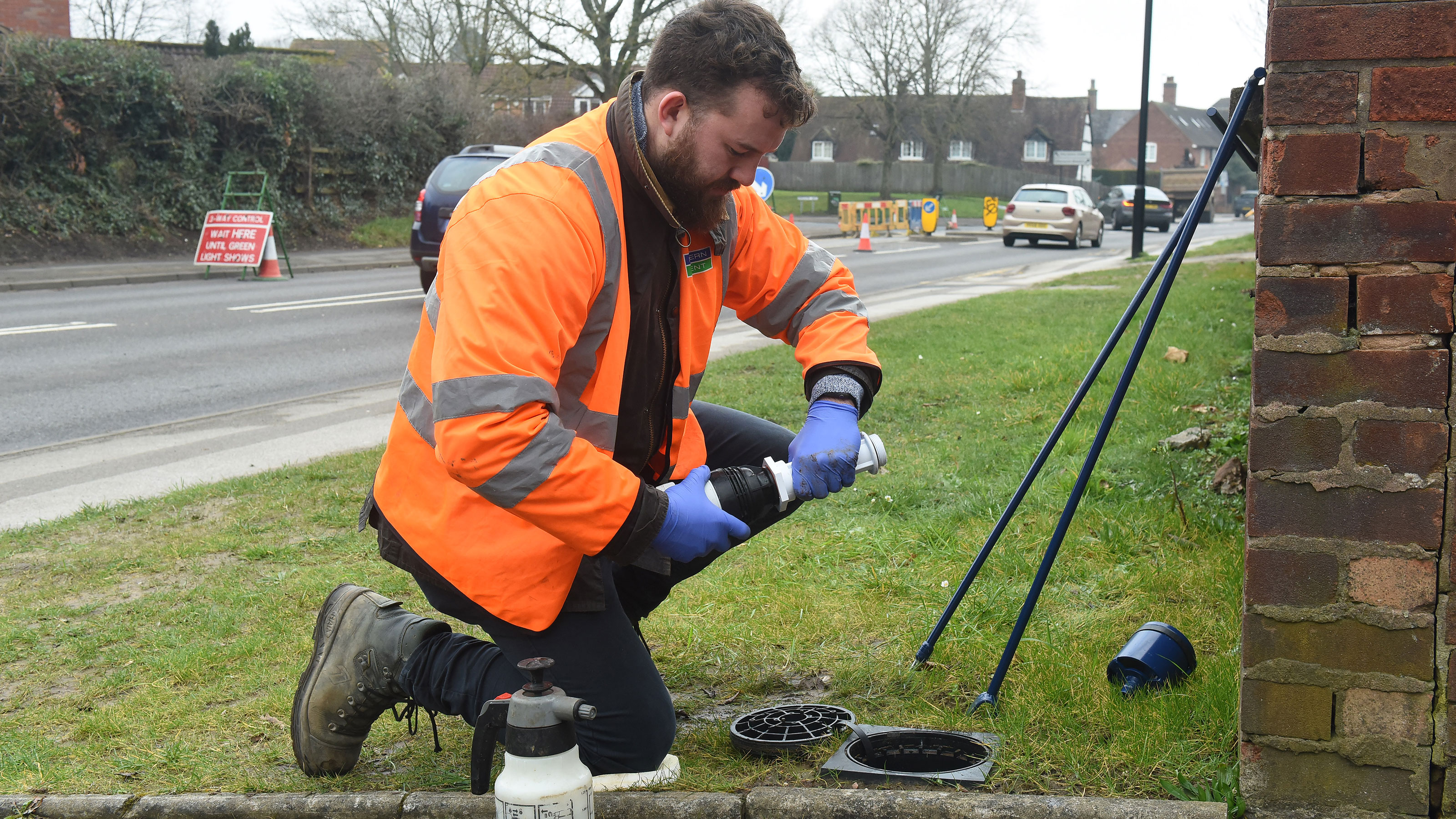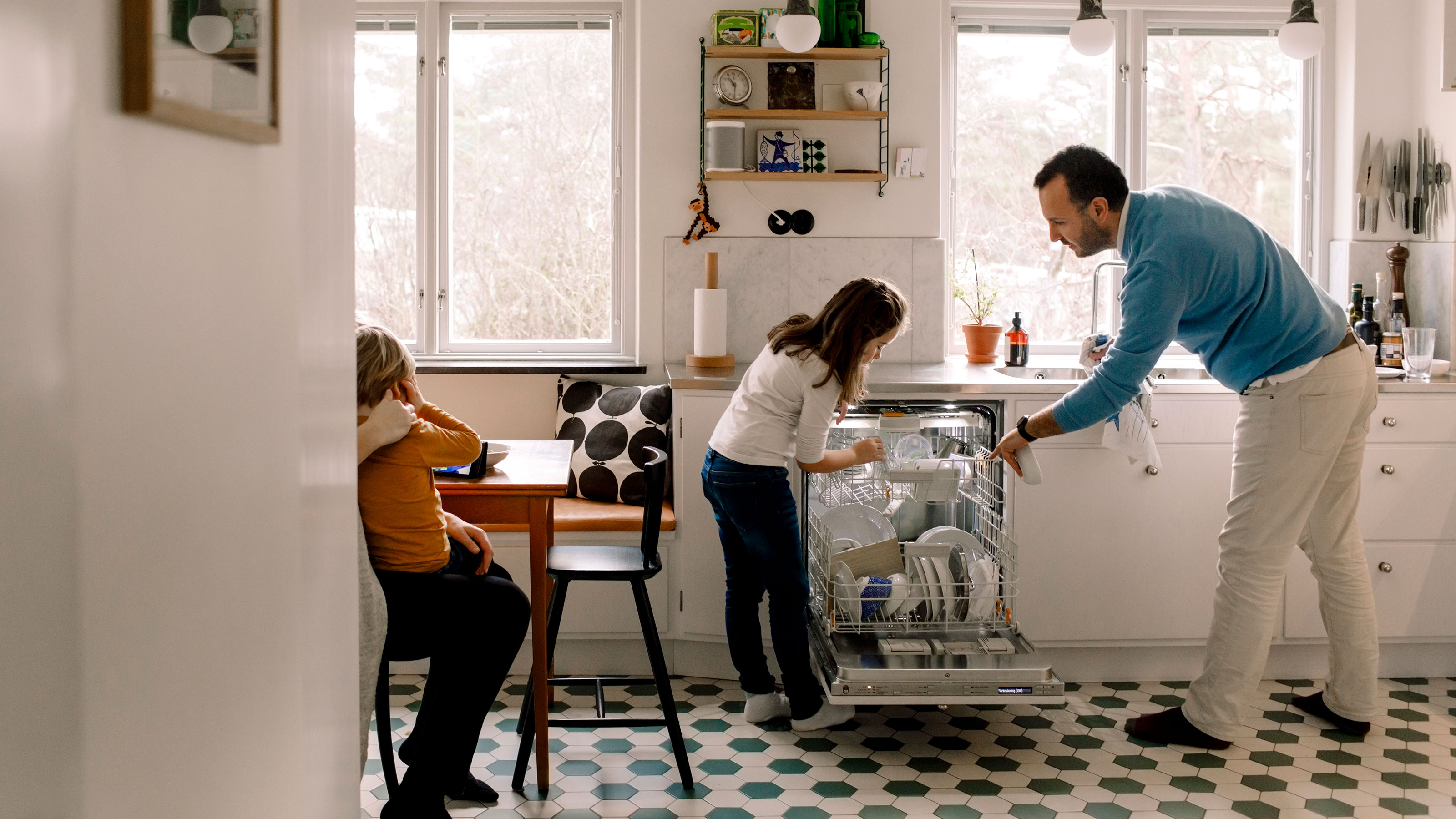Do water meters save money? The benefits, costs and more
'Do water meters save money?' is a question you may be asking to help lower your bills, but not all households will benefit from water meters

Water meters are devices that record how much water is used in your home and could be a good option for certain households looking to lower their bills.
In 1990, it became mandatory for all new homes to be fitted with a water meter, which means rather than paying a fixed rate for your water use, owners of new homes are only charged by their suppliers for the water they have used.
For some households this can lead to significant cost savings, as well as saving water, but for others it might mean you’ll end up paying more.
Here's why as well as everything you need to know about whether your home may be suitable for a water meter and how to go about getting one installed.
How do water meters save money?
“Smart meters in general provide a fairer way to pay for water, as they only charge for the water used by the household and this means lower bills for many customers,” explains a spokesperson for Thames Water.
Not only can water meters help you save money, but saving water is beneficial for the planet.
A Severn Trent spokesperson says: “We know that many customers find that their bills are cheaper after switching to a water meter, and if you use less water after switching to a water meter, it makes environmental sense too.
Bring your dream home to life with expert advice, how to guides and design inspiration. Sign up for our newsletter and get two free tickets to a Homebuilding & Renovating Show near you.
“Using less water means less water needs to be heated. This can help you to save on your energy bills and reduce your (and our) carbon footprint.”
With households dealing with frequent energy price rises at the moment, any energy saving tips are worth considering.
How much money could you save?
For homeowners on fixed rates, bills are based on what’s known as rateable value, where you pay a fixed amount depending on the size of your house. The average annual water bill for households without meters was £422 in 2021/22, according to Anglian Water, which is around £1.16 a day.
Your meter savings will vary depending on how much water your house uses, but MoneySavingExpert reports that homeowners could save hundreds of pounds a year.
And Thames Water says that, on average, households using meters use 12% less water than households without meters.
Of course, this very much depends on how much water you use and your house size as to whether a fixed rate or metered rate is cheaper.
Who could save money from using water meters?
A general rule of thumb is that if there are fewer people living in your home than bedrooms, then you should be able to save money with a water meter. This means that anyone living alone, couples or small families could benefit from making the switch.
There’s a number of calculators you can use to determine whether you would save money from being on a meter, including this Consumer Council for Water (CCW) Water Meter Calculator which tells you your estimated costs if you were to have a meter installed.
There’s another benefit from being on a water meter, too. “Meters can also indicate a leak at a property, as there will be a continuous flow even at times where we wouldn’t expect to see any water being used,” says Thames Water.

Who wouldn't benefit from being on a water meter?
Larger families or households which regularly use dishwashers, washing machines, showers and garden sprinklers () aren’t likely to benefit from switching to a water meter.
Ask yourself questions like how much water does a garden sprinkler use per hour if you do plan to switch to a meter and your water consumption could potentially be high.
Also, a leak of one drop per second can increase an annual water bill by as much as 6%, according to Direct Line.
How easy is it to get a water meter installed?
This depends on where you live. In England and Wales you can’t switch between water providers, but you can get a water meter installed for free. Simply contact your provider to begin the process.
In some instances, however, you may be refused a water meter. This could be because installation is too expensive or difficult, or if you share a water supply. In this case you might be offered an Assessed Volume Charge - usually based on the size and type of your property - which can help you to pay less.
Thames Water explains: “The assessed household charge is used for properties which can’t have a water meter installed and bill for water based on assessed consumption charge. We calculate this by multiplying the average water consumption of properties with the same number of bedrooms as the customer’s, by the relevant rate per cubic metre.”
In Scotland, water bills are based on council tax bands, and it can actually be quite pricey (around £300) to have a water meter installed. There is no need to have a meter in Northern Ireland because there are no domestic water charges.
Can I try using a water meter then switch back?
Yes, providing you haven’t recently moved into a house that already has a meter.
Many providers will let you try a water meter to see if it saves you money and give you either a year or two years to change it back, free of charge.
“This means that customers are able to have a meter installed and if within two years they don’t feel they are financially benefitting from having a meter they can switch back to their original tariff,” explains Severn Trent.
Your provider won’t uninstall the meter but it will be able to revert your bill back to a fixed rate.
Jack has worked in journalism for over a decade and was the former News Editor of Homebuilding & Renovating between 2019 until 2023. In his time as News Editor he broke the most relevant and beneficial stories for self builders, extenders and renovators, including the latest news on the construction materials shortage, planning permission and green initiatives. In 2021 he appeared on BBC's The World at One to discuss the government's planning reforms.
He enjoys testing new tools and gadgets, and having bought his first home in 2013, he has renovated every room and recently finished a garden renovation.

